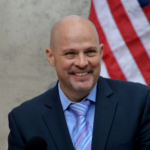
New York City charter schools are once again calling for New York State to lift the cap on the charter sector. What charter executives won’t admit is that — under the current cap — they are able to add hundreds of new schools and as many as 50,000 additional seats, an expansion that would drain another $1 billion in funding every year from our public schools.
New York State legislators need to halt these planned expansions that would only solidify charters as a parallel — but unregulated and discriminatory — school system, one that is draining resources from many of New York’s neediest kids.
New York City has 235 operating charters. Each charter license, however, permits a school to eventually serve students from kindergarten through 12th grade. So, over time, one charter is the equivalent of three individual charter schools — an elementary, a middle and a high school. New York City’s 235 charters actually represents some 377 charter elementary, middle and high schools and about 123,000 students, more than the entire public school populations of Detroit and Atlanta combined.
And that is before the charter sector fills the roughly 50,000 additional seats it pushed through the approval process for grade-level expansions, seats, as yet unfilled and un-built.
When New York City reached its charter cap of 235 schools in March — part of the 460 charter schools allowed across the state — Albany lawmakers did not increase the cap in this year’s state budget, passed in April. They stood firm thanks to our ongoing work informing the new Democratic majority in the state Senate and Assembly Democrats of the damage that charter schools do by siphoning off much-needed funds from public schools.
But this fight is not over. The charter school industry has regrouped. Gov. Andrew Cuomo has expressed his support for raising the cap in this legislative session, which ends in June. The SUNY Charter Institute, which authorizes charters, would like to get rid of the charter cap altogether.
We think state lawmakers should focus instead on demanding more transparency and accountability from charter schools and demanding that they educate the same spectrum of students as public schools do. That’s why we support state Senate bill 4237 (Hoylman) that would require charter schools to enroll English language learners, students with disabilities and students who receive free or reduced lunch in numbers comparable to public schools. If that bill were to pass, no longer would charter schools be able to simply push out students they deem too difficult to teach or who threaten to lower the school’s overall test scores and graduation rates.
We’ve heard many such stories, and they keep coming. This April, a parent initiated a federal lawsuit against a Success Academy charter school in Brooklyn. The lawsuit charges that Success Academy undertook a campaign of harassment designed to pressure her son, who has special needs, to leave the school.
The state Senate bill also would require charters to report information about their donors and executive compensation. This is information they have held close to the vest for far too long. It would also cap compensation for most charter executives at $199,000.
And no more free rent. Under the bill, charter schools with more than $1 million in assets would no longer be allowed to take up precious space in New York City public schools through rent-free co-location. And the schools with that kind of bank account could no longer expect the city to pay for private space if public school space is not available.
In April, U.S. Secretary of Education Betsy DeVos granted $9.8 million to her good friend Eva Moskowitz and Success Academy. That’s nearly $10 million that DeVos could have spent on our public schools that take and keep all students, including those who struggle.
The city Department of Education estimated that the city’s bill for charter school rent will jump from $57 million in fiscal year 2019 to $89 million this fiscal year. Again, this is funding that is being taken away from other city services, including our public schools, to assist charters that in many cases have wealthy benefactors.
When charter school tuition is added in, the New York City charter sector receives over $2.1 billion a year in public funds. If the 50,000 additional appoved seats are not frozen, public support could jump another $1 billion a year.
Charter schools are not a benign choice — they drain the lifeblood from public schools: This is what is at stake in the latest push to increase the New York City charter cap.
Parents are seeing the bigger picture, too. The city’s Community Education Councils want the city to stop sharing information about their children with charter school networks. One parent complained that the charter networks flood neighborhoods with promotional materials “full of exaggerations and lies.” The city appears to be considering a policy change.
Let’s not forget that the billionaires financing the charter school lobby are the same people funding the anti-union groups that are trying to use the U.S. Supreme Court’s Janus decision as a sledge hammer to crush the rights and benefits won over the decades by unionized public employees.



